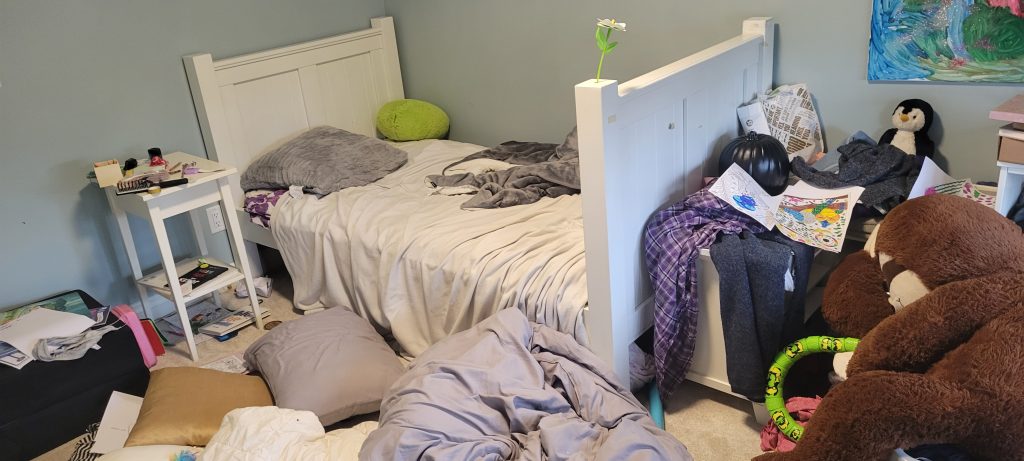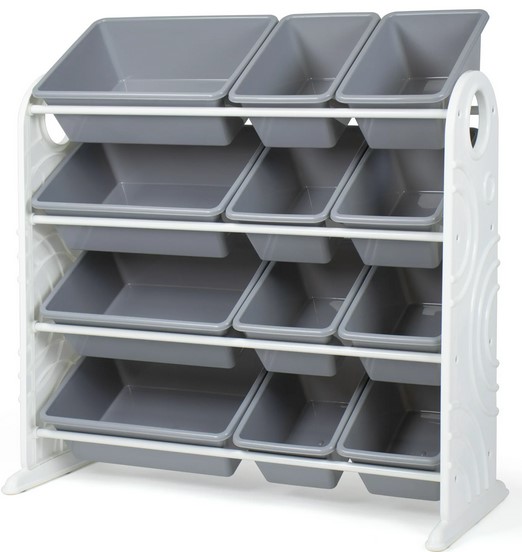1 The Meaning of “Organized”

If you’re like most kids, at least once you’ve had your parent get very mad at you because your room was a mess. And if you’re like most kids, you gathered up all the clothes, toys, and books that were on the floor and pushed them under the bed. No one could see any of the mess!

So you took everything from under the bed and threw it into the bins of the new storage rack. It was still all mixed together because it seemed like a lot of work to separate the clothes from the toys and books.
Let’s compare the definitions of “messy” and “organized.” Some words that are similar in meaning to “messy” are “cluttered,” “jumbled,” “untidy,” “sloppy,” “disordered,” and “disorganized” (notice that the prefixes “un-” and “dis-” both mean “not-“). Some words that are similar in meaning to “organized” are “orderly,” “arranged,” “grouped,” “sorted,” “categorized,” “classified,” “systematic,” and “structured.”
So now it is easy to understand why your parent didn’t like your first two attempts to get rid of the mess in your room. Putting everything under the bed or piled into bins doesn’t organize it.
An organizing system might use shelves, containers, drawers, bins, boxes, cabinets, cages, or calendars to arrange the resources it organizes but that’s the result of organizing, not the process. A lot of people don’t succeed at organizing their things because they start by getting containers and boxes before they design the organizing system that might use them.
Likewise, many people are not good at organizing time because they start by getting calendars and planners that have “boxes of time” in them instead of first thinking about the events and activities for which they need to design a schedule.
In the next chapter we’ll start to explain the process of organizing in more detail.

